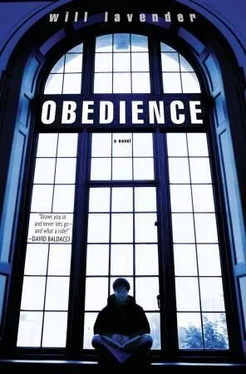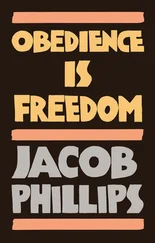There was also the circumstance of Polly’s mother: for the first time in a long while Polly’s mother was back in the picture. Her mother had been gone for almost a year, having left for San Francisco with a lithographer. Now her mother was calling again and Polly was afraid that her mother was going to return and, like she always did, ruin things for her.
And what about Polly’s father, Eli? Eli was an elementary school teacher at the Butler School on During Street. He had been teaching for almost thirty years and was on the verge of retirement. He enjoyed his job, but for the past few years things had begun to wear on him. When Polly disappeared, he took a leave of absence. He couldn’t imagine himself ever going back. To make matters worse, he had a run-in with an irate parent just a week before Polly disappeared that had left him cynical about the current administration at Butler. This man approached him in the parking lot after school one day and threatened him. Apparently Eli had sent this man’s son to the principal’s office “for no good reason,” as the father put it. As Eli remembered it, the boy had drawn a naked woman on the chalkboard, her legs spread. The father was incensed. Eli, for the first time in a long while, was afraid. He was a large man and could have handled this father easily, but he was timid, shy. Reserved. People referred to him as “quiet.” And here was this spark plug of a man with his finger in Eli’s face, accusing him of something he clearly didn’t do. Eli didn’t say anything to the man, just kept walking to his truck. He got in and shut the door, but the man was still there, at the glass. He was spitting mad. Eli pulled out of the parking lot and watched the man recede into the distance. When he was called on the 4th of August by the girl, the girl in the well who had said, “I’m here,” his first and immediate thought was this: The boy’s father has her.
Mary made sure to check the in-box a second time. There was another message there, called “Study Guide.” Mary clicked on it.
It was a picture of a dog, one of those big, happy breeds you see on television commercials. Beneath the dog Williams had typed, “Here is Pig’s dog, Lady.”
Lady was a black Lab.
On Tuesday Dennis tried to see Elizabeth, but she wouldn’t take his phone calls. When he got the old man he hung up quickly.
He walked around campus, then jogged, then broke out into a full sprint down Montgomery Street. He was in his khakis and blazer, his glasses sliding down his face, his hair smacking his forehead. When he got to the end of the street he stopped, bent over with his hand on his knees, and closed his eyes tightly. It had been a long time since he’d run, years, and it felt good. The muscles in his legs surged with heat. His heart banged in his chest. Torture yourself, Dennis, he thought. Go on. The stoplight changed, and Dennis started to cross Pride when he heard her behind him.
“I was working.”
He faced her. She was wearing a beige trench coat, and her books were slung up on her shoulder. It was true, she had been working: her eyes were tired, blood vessels broken here and there. He reached out for her hand but she pulled away from him.
“There’s so much going on,” she explained.
Dennis looked off. Evening was falling, and the streetlights were coming to life. “Yeah,” he said.
“My dissertation is coming up soon. It’s just not right to work all these years and not give it my best.”
“What are you writing it on, Elizabeth?” he asked. He looked in her eyes, trying to gauge her. She didn’t flinch.
“You know that, Dennis. Caretaking. How human beings take care of one another. How innately human that is.”
“Protection,” Dennis said.
“Yes.”
“Good luck with that.”
“Thank you, Dennis.”
“I just have one thing to ask you,” he said.
“Yes.”
“Is the link San Francisco?” he asked. “Or is it Pig?”
Again, there was no movement. No slit of the eyes, nothing. She stared at him. But when she opened her mouth to speak he saw it, just barely, in the way she failed to say anything. In the way her voice just slightly changed timbre.
“I don’t know what you’re talking about.”
He nodded. It was over, then. As quickly as it had begun. He turned back toward the intersection, and when there were no cars coming he broke into a sprint again and felt the roar in his ears. A hundred feet on, when he looked back to see if she was still there, she was. Standing in the same spot. That night he would wonder about it ceaselessly: Had she been crying? Was that movement to her face a tug of the collar over her cheeks to block the wind, or was it something else?
Elizabeth reminded him, standing there, of his father. How strange. How you never could quite figure him out. His posture, his glances. How you would often look back at him after he’d left you somewhere-at school, at a soccer match-and wonder what he was thinking. Teaching, he’d told Dennis, is the greatest learning tool. And back to his papers he would go. He would shut himself inside his den for hours, and when Dennis’s mother said, “Go check on your father,” he would peek in to find the man slumped over at his desk, head down, asleep.
It was a long, sleepless night. Dennis had known it was over with Elizabeth before, when she dropped him off after the Kingsley Hotel, but there was a lack of closure. Hadn’t she granted it to him? Hadn’t she given him what he needed?
Yes. But it was all so backhanded. Underhanded, even. Wrong.
Because he still wanted her. Before she had met him yesterday on Montgomery, he was through with it. Now, suddenly, she crowded his thoughts.
Wrong. It was fucking wrong to do someone the way she had.
There was still a way, he knew. Elizabeth Orman herself had given it to him at the Kingsley. She had given him the trump card, his way back to her. He couldn’t get to her by calling her on the phone, just as he couldn’t get to his father by knocking on the door of his den and asking to come in. Even with all his honesty and his charm he knew that he would have to find another way back to Elizabeth.
And so Dennis decided to play the card she had given him.

*
Wednesday’s guest speaker was a policeman, introduced simply as Detective Thurman. Thurman stood at the podium and addressed the class with his hands trembling. Professor Williams took a seat with his class and scribbled notes along with his students, pondering Thurman’s points here and there, laughing at the man’s crude jokes. The detective had an impressive paunch and spoke in a smoker’s whisper. His face was just shaved and irritated, and only a mustache, stained from years of nicotine and stress, remained. He had big fat hands that were all nicked up, Mary assumed, from days spent tending his garden. He had brought Professor Williams a huge paper sack of vegetables. Tomatoes, he’d scrawled on the bag.
“It’s not how you think,” he told the class. “Solving crimes ain’t the easiest thing in the world. I know you all are smart. I mean, I know Winchester is like Yale and Harvard”-some of them had a laugh at that comment-“but still. It takes a deeper intelligence to solve crimes. They’re like locks. You pick the first tumbler, and you feel something slide into place. That’s one theory. But there’s more. The pin slides in deeper, past the first set of tumblers to the second, and you have to pick them, too. And then there’s a third set, way down in the back of the mechanism, almost impossible to get to. You’ve got a perp? Okay. Does he have an alibi? He does not. Okay. What’s his motive? He’s got a viable motive? Okay. Can you find the evidence to convict him in court? It’s a series of tumblers that you have to go through, and when the last one falls into place the lock slides apart and you can get inside the thing to look around. A lot of people think there’s some voilà moment where everything becomes clear. Well, it ain’t like that. It just isn’t.”
Читать дальше












